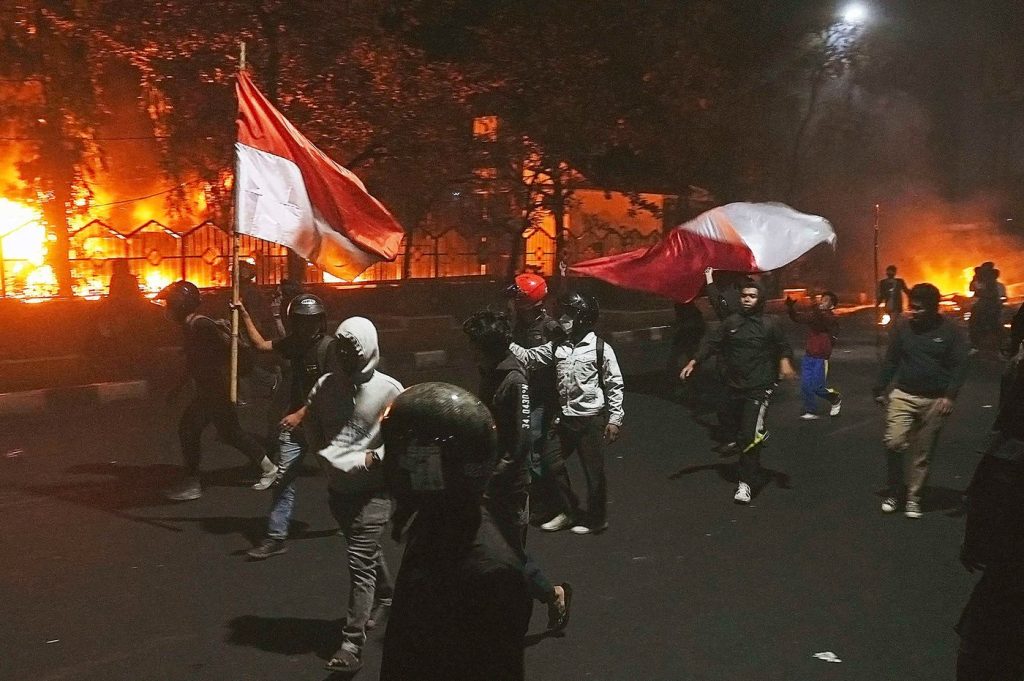In Jakarta, Indonesia, a violent protest led to an angry mob setting fire to a local parliament building in Makassar, resulting in at least three deaths and five injuries. The conflagration took place late Friday, with local television footage showcasing the provincial council building engulfed in flames, casting an eerie orange glow over the area. By Saturday morning, rescuers had recovered three bodies, while five individuals were hospitalized with serious injuries sustained during the chaos, including burns and fractures from jumping from the building, as reported by local disaster official Fadli Tahar.
Parallel protests erupted in Bandung, West Java, where demonstrators also set fire to a regional parliament building; however, no casualties were reported from that incident. Meanwhile, in Surabaya, Indonesia’s second-largest city, protesters stormed the regional police headquarters, causing significant destruction including damaged vehicles and fences. In response, security forces deployed tear gas and water cannons, leading to a fierce confrontation as demonstrators resisted with fireworks and makeshift weapons.
Calm eventually returned to Jakarta by Saturday, as authorities worked to clear the remnants of destruction, including burned-out cars, police stations, and bus shelters, which had all been targets of the angry protests. The unrest was sparked earlier in the week, following revelations that all 580 lawmakers were receiving a monthly housing allowance of 50 million rupiah (approximately $3,075), in addition to their salaries. This allowance, introduced the previous year, is nearly ten times the minimum wage in Jakarta, drawing heavy criticism for being excessively lavish amid rising living costs and employment struggles for the general populace.
The protests escalated following the tragic death of 21-year-old ride-hailing driver Affan Kurniawan during a rally in Jakarta. His demise, allegedly occurring when he was struck and run over by an armored police vehicle while fulfilling a food delivery order, incited nationwide outrage against law enforcement. Witness accounts indicated that Kurniawan was hit after the police vehicle moved aggressively through the crowd and did not stop after the impact.
Subsequent unrest spread throughout multiple cities across Indonesia, including Medan, Solo, Yogyakarta, and Papua, leading to widespread clashes between riot police and protesters. By Thursday, approximately 951 people were reported arrested in Jakarta according to the National Commission on Human Rights (Komnas HAM), which indicated that the number of injured among civilians was likely much higher than reported. Authorities noted that about 25 police officers suffered serious injuries due to protester attacks in Jakarta.
Amnesty International condemned the Indonesian government's response to the protests, asserting that it curtails free speech and suppresses public demonstrations. Usman Hamid, the Executive Director of Amnesty International Indonesia, emphasized that no one should lose their life for exercising their right to protest and urged authorities to release anyone detained solely for expressing their rights. In response to Kurniawan’s death, authorities confirmed the detention and questioning of seven members of the police motor brigade involved in the incident, signaling an acknowledgment of accountability amidst the growing tension.










